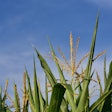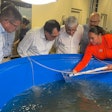
In response to Hurricane Debby, Agriculture Secretary Tom Vilsack has directed the U.S. Department of Agriculture (USDA) to provide crucial support for affected farmers, ranchers and residents along the East Coast. USDA teams are prepared to offer a variety of program flexibilities and assistance to impacted communities.
Food safety measures post-storm
The USDA's Food Safety and Inspection Service (FSIS) is advising residents on how to minimize foodborne illnesses in the aftermath of the hurricane. Important guidelines include keeping refrigerator and freezer doors closed to maintain temperatures and discarding perishable food that has been at risk. For households without safe bottled water, methods on boiling and disinfecting water are available on the FSIS website. Additionally, residents are instructed to dispose of any food or beverage not in waterproof containers if they have contacted floodwater.
Agricultural disaster assistance
USDA provides several risk management and disaster assistance options through programs like the Federal Crop Insurance Program and the Noninsured Crop Disaster Assistance Program (NAP). Producers are encouraged to promptly report crop damage within set deadlines. Other key USDA programs aiding in recovery include:
- The Livestock Indemnity Program and the Emergency Assistance for Livestock, Honeybee, and Farm-raised Fish Program, which offer compensation for losses.
- The Tree Assistance Program for orchard and vineyard rehabilitation.
- The Emergency Conservation Program and the Emergency Forest Restoration Program, assisting with farmland and forest restoration.
USDA’s Natural Resources Conservation Service offers financial resources for immediate needs and long-term recovery through its Environmental Quality Incentives Program.
Resources and further assistance
The USDA’s Disaster Assistance Discovery Tool, available on farmers.gov, helps producers and landowners identify suitable program or loan options for their specific situations. USDA's Food and Nutrition Service (FNS) and Rural Development (RD) also stand ready to provide emergency nutrition assistance and support for rebuilding rural infrastructure, respectively.
For more detailed guidance and resources, affected individuals are encouraged to visit the USDA website or contact their local USDA Service Center.


















